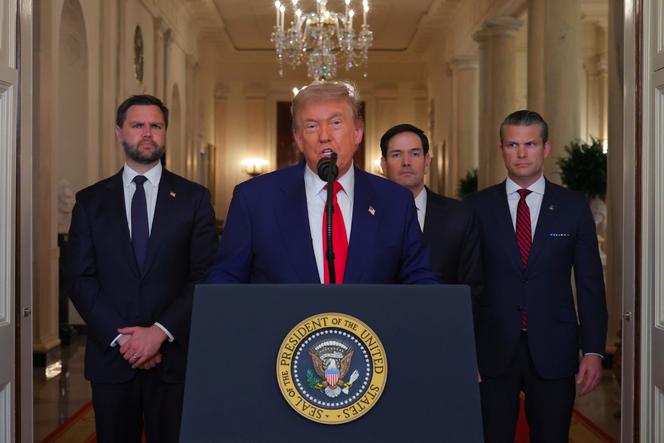

When it comes to the Middle East, History is replete with premature victory announcements. This reminder is necessary after Donald Trump claimed a "spectacular military success" just moments after the United States bombed the three main Iranian nuclear sites on the night of Saturday, June 21. Yet just 10 days earlier, the US president had been advocating for diplomacy to halt Iran's unacceptable and dangerous nuclear program, which the regime in power started decades ago.
This about-face can be explained by an unexpected reversal in the balance of power between the US and Israel, its ally. Trump, after being confronted with a fait accompli by Israeli Prime Minister Benjamin Netanyahu, who chose to go to war against Iran on June 13, resigned himself to following suit, lending Washington's firepower to Israel, notably with bunker-buster bombs, which only the US possesses. The situation is unprecedented. The Middle East now finds itself in the grasp of an Israeli-American duopoly, which is, in reality, based on Israel's military hegemony.
The brutality of this reversal is as questionable as its long-term effectiveness. After the attack, Trump issued a warning to Tehran: "There will be either peace or there will be tragedy for Iran far greater than we have witnessed over the last eight days." The Iranian regime, which survives by repressing its own people, is weaker and more isolated than ever, still has real disruptive capabilities. As a result, the US wanted to warn it against conducting any retaliation targeting the many American interests in the region. Such reprisals would drag the region into a devastating spiral of escalation. Yet that is not the only option available to Tehran.
As Trump himself acknowledged, the American bombings are, by nature, not likely to put a definitive end to Iran's nuclear ambitions, even if those goals have likely been severely degraded. To achieve a total and lasting halt to Iran's nuclear program, the American president has just deprived himself of a tool – diplomacy – that had proven effective with the previous Iran nuclear deal, concluded between several countries in 2015.

Today, who could believe that the Iranian regime would still be willing to engage in talks with the US? The Americans had already broken their word in 2018, by withdrawing, at Trump's initiative, from the treaty they had signed three years earlier. Recently, American officials claimed to want to negotiate, all while they gave the green light to Israel for its campaign of strikes and assassinations targeting senior regime officials.
What would Washington do if Tehran decided to withdraw from the Nuclear Non-Proliferation Treaty, to which it is a signatory, unlike Israel, an unofficial nuclear power? That would deprive the International Atomic Energy Agency of access to Iran, access that it has always had to win through great struggle, and which remains essential. Would the US bomb Iran again? Seek to topple a regime that is, undeniably and justly, despised, despite the risk of pushing Iran to implode, a risk that has, in the past, been tragically confirmed by the situations of many other countries in the region?
A few days earlier, in a message published on his social media platform, the US president gave his definition of peace: "unconditional surrender." The American bombings, a culmination of the law of the jungle and the primacy of brute force in the stead of international law, now seen as a relic of the past, have darkened the horizon, rather than cleared it.
Translation of an original article published in French on lemonde.fr; the publisher may only be liable for the French version.
